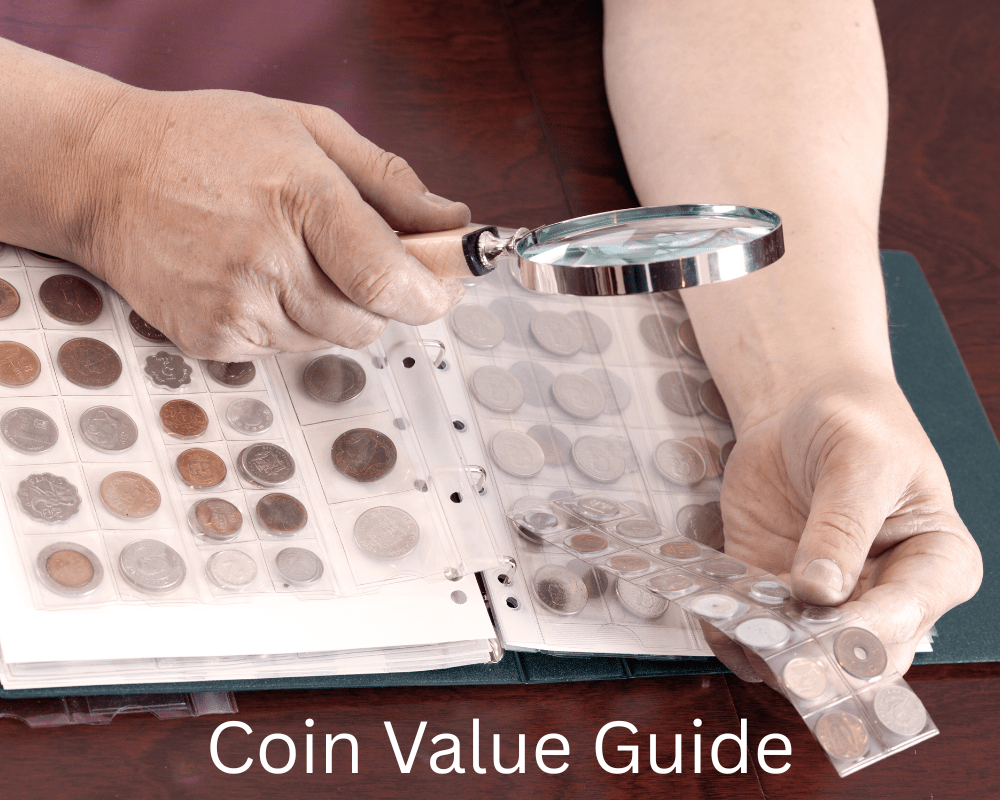Bellevue 425-454-1283 · Lynnwood 425-672-2646 · Issaquah 425-392-0450 · Tacoma 253-328-4014

What are my coins worth? It’s a simple question, with a not-so-simple answer! The truth is that the value of a coin collection varies dramatically, from a few dollars all the way into the hundreds of thousands, or even more. In fact, the most expensive coin ever sold fetched a mind-boggling $18.87 million dollars — and that was for a single coin!
Of course, you’re probably not sitting on a $19 million dollar Gold Eagle, but you still might be surprised to learn how much your coins are worth. This guide will help give you some pointers on how to find the value of coin collections.
Put simply, the value of your coins will be determined by a combination of:
To help conceptualize, let’s break things down further.
Most of the time, “intrinsic value” refers to the value of the base metals (usually precious metals) used in coins. So for example, a Morgan Silver Dollar is 90% silver, and contains around 0.77 troy ounces of pure silver. The intrinsic value of a Morgan Silver Dollar would then be equivalent to the melt value of 0.77 troy ounces of silver. At today’s price around $38 per ounce, that’s around $29 of intrinsic value.
Importantly, intrinsic value essentially ignores item condition, rarity, and collectability. It serves as kind of a base value for an item. Many items with intrinsic value will be worth more than that intrinsic value, because they are also collectible. For instance, a Morgan Silver Dollar with a rare date may be worth substantially more than its intrinsic value.
Also important to note is that the intrinsic value isn’t necessarily the exact amount that a coin buyer would pay you for the item. For instance, using that same Morgan Silver Dollar example above where the coin has a ~$29 intrinsic value, a coin dealer may only pay you perhaps $25 for that item, and would then resell it for more like $29-$32+ in order to make a profit.
You can get a rough estimate of a coin’s intrinsic value by looking up how much precious metal (gold/silver/platinum) it contains, then multiplying by the current value of that precious metal per ounce. For many common coins, you can also use an online resource like Coinflation.
The collector value of a coin is based on the rarity, condition, and any other unique factors associated with the coin. For example, if you have two Lincoln Pennies in equal condition, but one is a rare date and one is a common date, the rare date will be worth substantially more. Or if you have a coin with a mint-made error, it could be worth even more.
Unlike with intrinsic value, the collector value of a coin is heavily influenced by its condition. If the coin is graded, it will be assigned a numerical grade by coin experts – but the vast majority of coins in circulation are not graded. Coin dealers and collectors will need to assess each item’s condition manually, or consult an expert. And because condition heavily impacts value, it’s crucial to make sure you take care of your coin collection properly.
Also important to note is that the value of a coin really depends on the buyer. Just because a coin is “worth” $300 doesn’t mean that every collector would want to pay that — and likewise, dealers may or may not be interested for anything near that value.
You can get a rough estimate of a coin’s collector value by consulting coin value guides. PCGS and NGC both have free resources online that you can consult, or you can purchase a physical copy of a coin value guide at a local coin store.
Figuring out the value of an entire coin collection is a little trickier. The simplest way is to take it to a coin expert and get it evaluated. You could visit a coin show or expo and schedule an appointment with an appraiser, or visit your local coin shop for help.
When selling a whole coin collection, it’s possible that the buyer won’t actually want all of the items. In some cases, you may have to split it up to get the most value. Or, you can sell it to a coin dealer at a discount, and the dealer will then resale portions of it to interested buyers, and wholesale anything that they don’t want to keep.
The simplest way to sell coins is to visit a local coin shop. Ideally, call ahead or schedule an appointment to make sure they are currently buying. Then, bring in the items you’re interested in selling, and get them evaluated.
A trustworthy coin dealer will prepare an offer for your coins and give you a fair value, based on the valuation metrics we discussed above. Crucially, a good dealer won’t pressure you into selling – so you’ll be free to make whatever decision is right for your situation.
If you’re in the Seattle area, selling a coin collection in Seattle is easy! Just come to Bellevue Rare Coins, the northwest’s trusted coin shop for more than 40 years. Our knowledgeable staff will assess your items and prepare a no-obligation cash offer for you same-day. We have convenient locations in Bellevue, Lynnwood, Issaquah and Tacoma. For the fastest service, we recommend scheduling an appointment online.